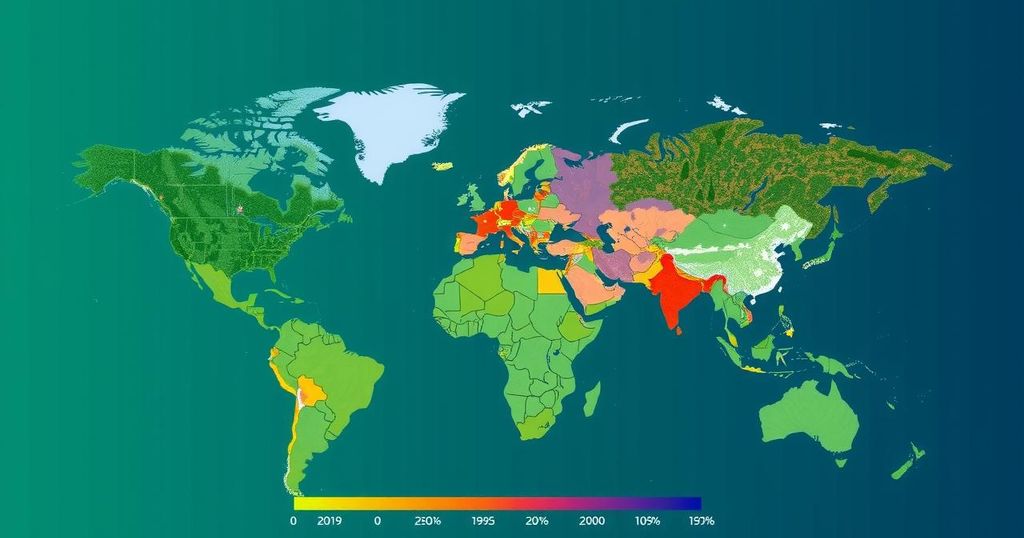Global Elections Reveal Erosion of Commitment to Climate Action

The global election year of 2024 has highlighted a concerning trend of reduced commitment to climate action in several nations. Significant political victories for climate skeptics and populist leaders have shifted focus away from urgent climate concerns, influencing public perception and policy. Despite some isolated successes for pro-environment parties, the overall momentum towards addressing climate change appears to be waning as economies prioritize other pressing issues such as inflation.
The recent global elections have revealed a disheartening trend regarding climate action, indicating a decline in commitment to combat the climate crisis, despite the persistent and escalating environmental disasters witnessed globally. In 2024, termed as the “biggest election year in human history” by the United Nations, political victories have been seized by leaders who either disregard the climate emergency or promote climate skepticism. This includes Donald Trump in the United States, populist right-wing parties in Europe, and Vladimir Putin in Russia, all of whom are associated with policies that undermine climate action.
Catherine Fieschi, an expert on European political dynamics, noted that the electoral outcomes in advanced economies revealed a setback for climate initiatives. The political discourse has gradually shifted from prioritizing environmental issues to addressing inflation and energy prices, often leading to the perspective that climate action poses an economic threat rather than an exigent necessity. Despite a year marked by extreme weather conditions, such as unprecedented floods and heatwaves, climate considerations have overwhelmingly taken a backseat electorally, except for specific instances such as farmer protests in India that influenced Narendra Modi’s re-election.
In Europe, the success of right-wing parties promoting an anti-climate agenda reflects a similar sentiment; they argued that climate action was financially burdensome. Conversely, while there were notable wins for pro-climate parties in the UK and France, the overarching narrative this election year has been one of diminishing urgency regarding climate change.
The recent COP29 climate summit in Azerbaijan exemplified this issue, with a disappointing turnout from world leaders and ongoing discussions dominated by fossil fuel proponents. Activists have expressed significant concern over the lack of substantial agreements on emissions reductions and climate financing, especially from wealthier nations. According to Gerry Arances of the Center for Energy, Ecology and Development, the political climate appears to be swayed by the impending influence of leaders like Trump, leading to a scarcity of progress in global climate initiatives.
The article addresses the interplay between global political trends and climate action leading up to the year 2024, which has been highlighted by the United Nations as an exceptional election year. The confluence of various electoral outcomes, particularly in regions such as the United States and Europe, reflects a shift in public and political will regarding climate initiatives. Factors such as economic concerns, the aftermath of the pandemic, global conflicts, and the rise of populist politics are contributing to the faltering commitment to address the climate crisis, even in the face of rising evidence of its urgency.
The trends observed in recent global elections suggest a troubling regression in climate change commitments, overshadowed by pressing economic issues and populist political narratives. As scientists warn of the dire implications of stalled climate action, the apparent prioritization of short-term political gains over long-term sustainability poses serious questions for the future of effective global climate governance. With powerful voices advocating for inaction and a shift away from green policies, the imperative for renewed commitment to climate action remains critical yet increasingly challenging.
Original Source: www.theguardian.com





